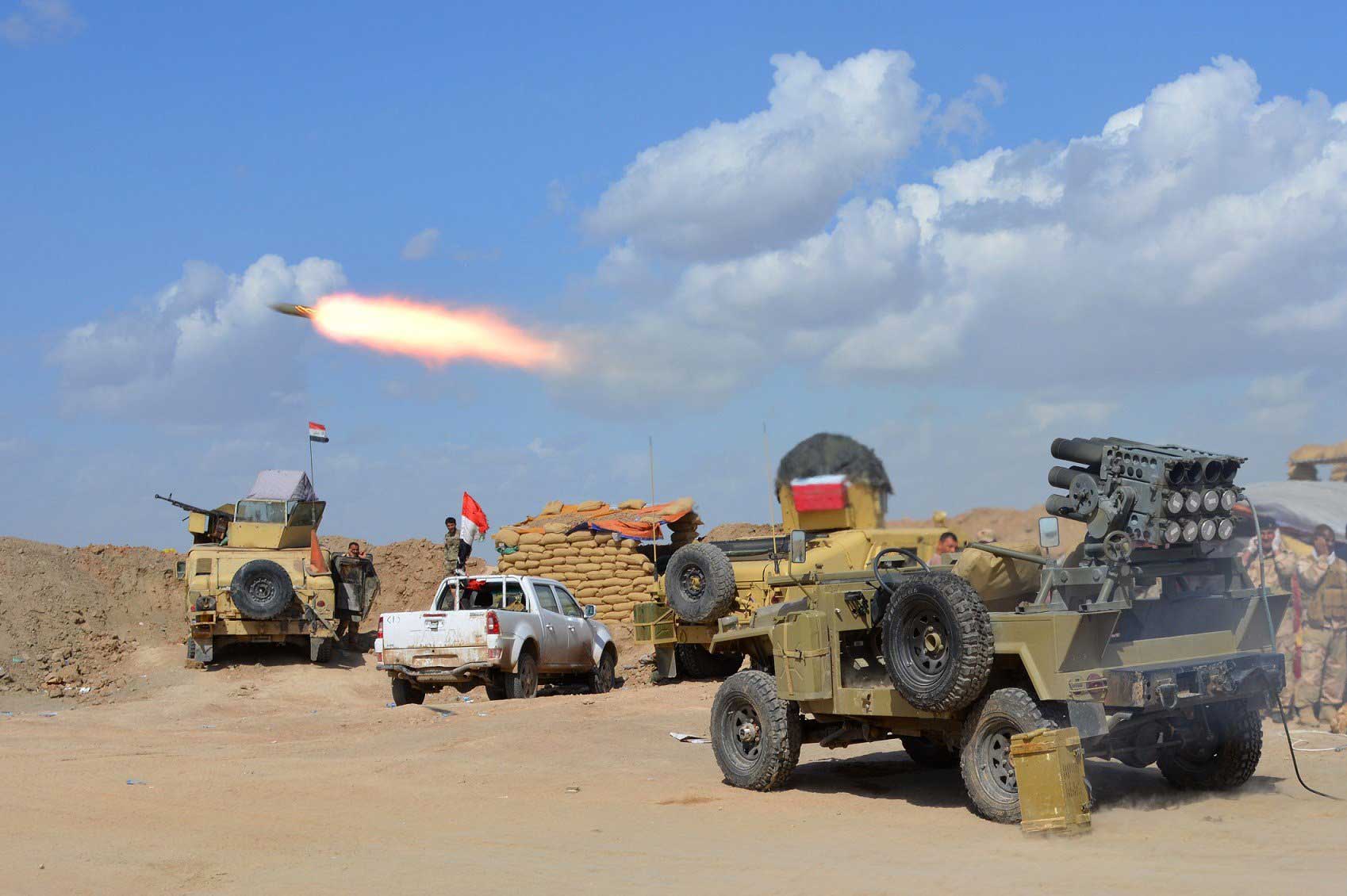
It took only a matter of hours for the Islamic State in Iraq and Greater Syria (ISIS) to take Tikrit last June, but the battle to regain the city is likely to be a long one. Tens of thousands of Iraqi security forces started their advance on Tikrit on Monday morning in their third attempt to re-establish government control. However, Iraqi security forces aren’t marching alone. They are flanked by thousands of mostly Shiite militiamen who have allied themselves with the Shiite-led government in Baghdad.
“We have not seen the Iraqi military able to take a sizeable area without either the participation of Shiite militias or Kurdish peshmerga,” says Kenneth M. Pollack, a specialist in Middle East political-military affairs and a former CIA analyst. “The U.S. has made it clear that the Iraqi brigades they are training are not yet ready to take part in operations.”
Unlike the American-trained government forces, Shiite militia are battle-hardened and ideologically driven, much like ISIS, making them militarily important. But this reliance on Shiite militiamen could further exacerbate the already deep Sunni-Shiite divide in the country.
“Tikrit is an overwhelmingly Sunni city and the forces attacking are overwhelmingly Shiite,” says Pollack.
Less than 100 miles from the capital, Baghdad, Tikrit is the hometown of former Iraqi President Saddam Hussein and a Sunni stronghold at the center of the Saladin Governorate. ISIS found relatively easy support in Tikrit among Sunnis who felt marginalized and oppressed by Shiite-led governments in Baghdad.
But, military planners believe that Tikrit’s Sunnis have grown tired of ISIS’s harsh rule for 10 months. They hope that some of those Sunnis will now be willing to turn their guns against ISIS. Iraqi Prime Minister Haider al-Abadi has offered these Sunni tribes a pardon, and a last chance to come back into the fold with the national government.
READ MORE: Inside ISIS, a TIME Special Report
“I call upon those who have been misled or committed a mistake to lay down arms and join their people and security forces in order to liberate their cities,” said Abadi at a press conference on Sunday in Samarra, 60 miles north of Baghdad.
During the American occupation of Iraq, these local Sunni tribes did rise-up against ISIS’s Al-Qaeda predecessor and fought in coordination with US-forces against other Sunni militiamen through the Sunni Awakening Movement.
“Sunni tribes of Tikrit could turn against ISIS,” says Hamed al-Mutlaq, a member of the Iraqi parliament and an influential Sunni politician. “They prefer the security forces to be in control. They would rather be with the Iraqi forces than ISIS.”
While tribal leaders may not want to see ISIS wielding all the influence in their territory, they’re even less likely to want to see Shiite militiamen controlling their streets.
“We know that there are Sunni tribal sheiks that don’t like [ISIS],” says Pollack. “But there are other Sunni sheiks who are more scared of the Shiite militias than they are of [ISIS].”

And they have reason to be. These Shiite militias that are marching alongside the Iraqi government forces have been accused of kidnappings, forced evictions and summary executions of Sunni civilians.
“The use of Shiite militias is a big problem,” says Mutlaq. “They have burned houses, terrorized and abducted people in Diyala, Samarra and Baghdad. They have a bad reputation.”
Mutlaq says he knows the Iraqi forces lack the weapons and training to take the city, but if they enter Tikrit with these Shiite militias they won’t be welcomed by the local population. Without the support of the Sunni tribes and local populations the government is unlikely to retake the city and if they do they will face constant resistance.
“The position of the tribes is critical in the long term. If they don’t accept the army’s occupation of Tikrit, they will resist. They can resist on their own, or they can resist with [ISIS].” says Pollack. “And that would be disastrous for Iraq. It would turn a government campaign against [ISIS] into nothing but a war between Shiite militias and Sunni militias.”
More Must-Reads From TIME
- The 100 Most Influential People of 2024
- The Revolution of Yulia Navalnaya
- 6 Compliments That Land Every Time
- What's the Deal With the Bitcoin Halving?
- If You're Dating Right Now , You're Brave: Column
- The AI That Could Heal a Divided Internet
- Fallout Is a Brilliant Model for the Future of Video Game Adaptations
- Want Weekly Recs on What to Watch, Read, and More? Sign Up for Worth Your Time
Contact us at letters@time.com